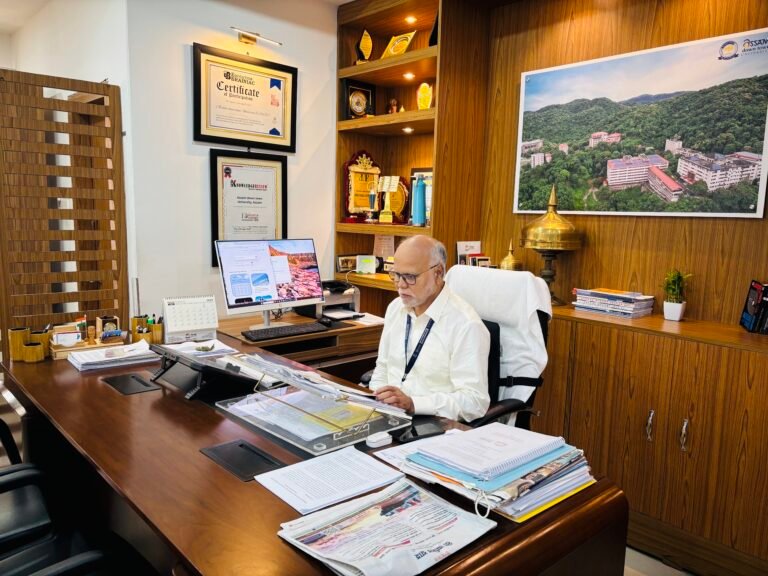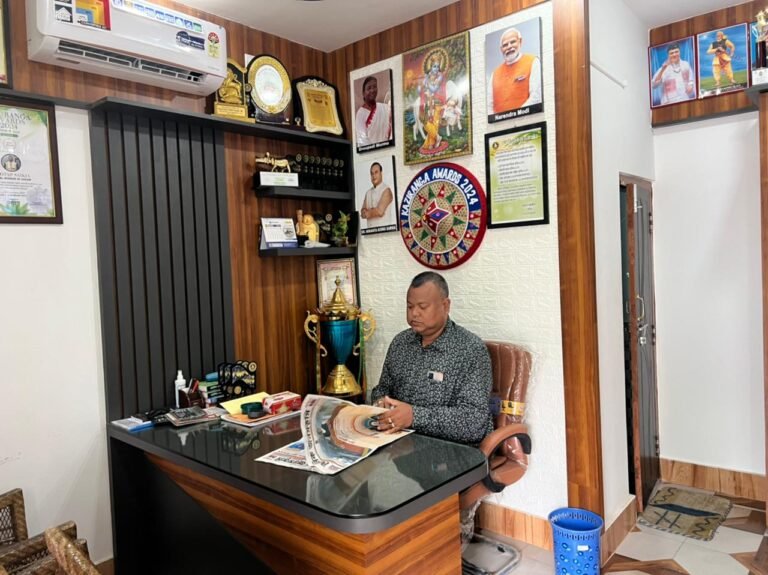Nagaland University at 30: Bridging Tradition and Innovation for a Changing Northeast
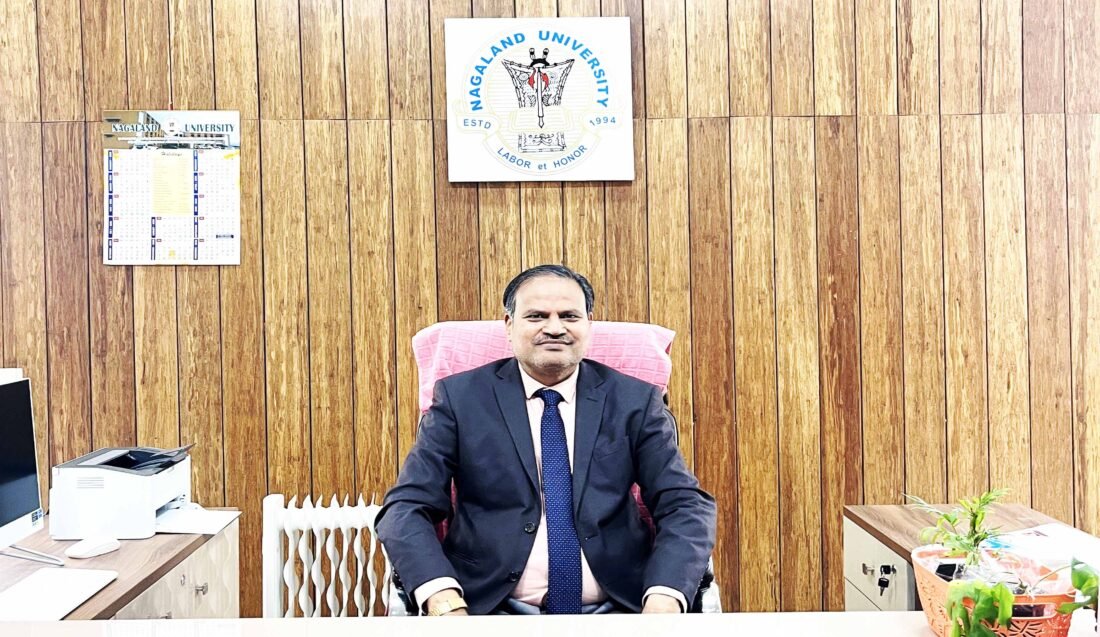
Established in 1994 as a Central University, Nagaland University (NU) stands as a vital academic and cultural institution for the North East, embodying the motto “Labor et Honor”—By Labour and Honour. With three permanent campuses at Lumami, Meriema (near Kohima), and Medziphema, NU continues to expand its academic, infrastructural, and social footprint in tune with the region’s unique needs.
As Nagaland undergoes rapid transformation, NU has positioned itself at the intersection of traditional knowledge systems and modern academic frameworks. From launching new vocational and postgraduate programmes to facilitating rural development and entrepreneurship, the University is steadily shaping a generation of scholars, professionals, and community leaders.
In this conversation, we explore NU’s evolving role through its academic philosophy, rural relevance, research ecosystems, infrastructure growth, startup incubation, and community linkages.
We also delve into the university’s plans under NEP 2020, its support mechanisms for students, and the vision for future growth—including new centres of excellence rooted in Nagaland’s socio-ecological context.
Here are excerpts from our interaction with the university’s Vice Chancellor Professor J K Patnaik
Questionnaire
- NU’s motto is “Labor et Honor”—By Labour and Honour. How does this ethos influence student life and curriculum?
This moto captures the true spirit of Naga Society in its work ethos and vocational pursuits. The Academic ecosystem of the University is guided by this moto in every aspect, beginning from the various courses Curriculum to research areas that the students pursue under NU. Be it Naga Language or Archaeology or even Ethno-Medicine —all are directly related to this moto that is embedded in the Naga culture.
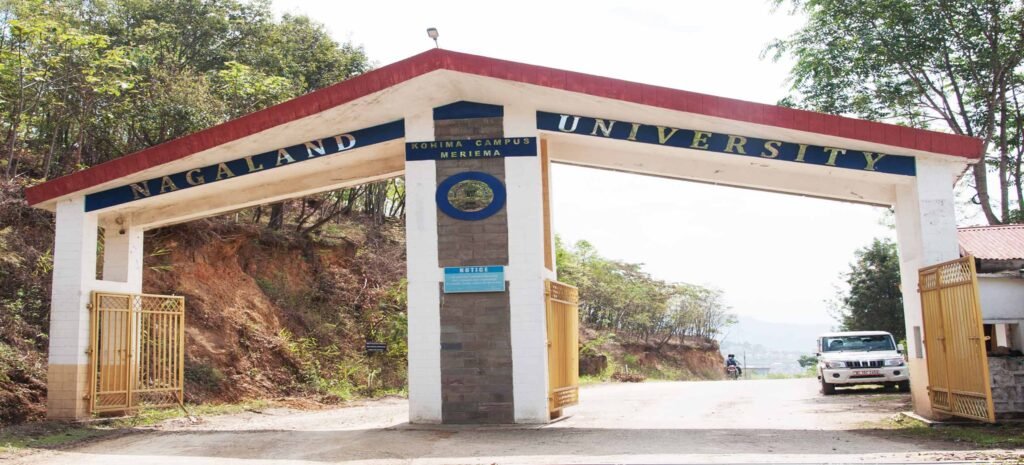
- NU was established in 1994 as a Central University, with three permanent campuses (Lumami, Meriema near Kohima, and Medziphema), plus a temporary B.Tech campus in Dimapur. Do you feel these campuses adequately serve the student population?
Presently NU is having three campuses only. The temporary campus at Dimapur has been shut down and the School of Engineering has been shifted to Kohima last year. The Kohima campus has many new buildings which came up in the last couple of years. The SET building is also ready for occupancy this month. Also, Kohima campus has been granted seven more buildings including hostels, staff quarters and Academic buildings under HEFA, which are likely to come up in a couple of years.
- NU has 43 disciplines spanning UG, PG, doctoral and vocational programmes. Which departments do you think could benefit most from expansion or new initiatives?
Interestingly, all the Schools are going to benefit under NEP 2020. Whether it is Language or Sciences or Engineering—every Department is going to get equal attention.
- NU introduced a new MA in Rural Development & Management in July 2025, with 20 seats, entrance on July 28, and eligibility at 50% UG marks. How do you assess this programme’s relevance to Nagaland’s rural needs?
Obviously the program has been tailored keeping in view the needs of the students to fit into job market, especially in the North East Region.
- The Kohima campus was selected to host one of four North East Incubation Centres in July 2025, supporting 44 startups initially. Future plan?
The incubation Centre will primarily focus on capacity building for setting Start ups by the potential Entrepreneurship especially in the area of agri business and related domains so as to make it relevant to the region.
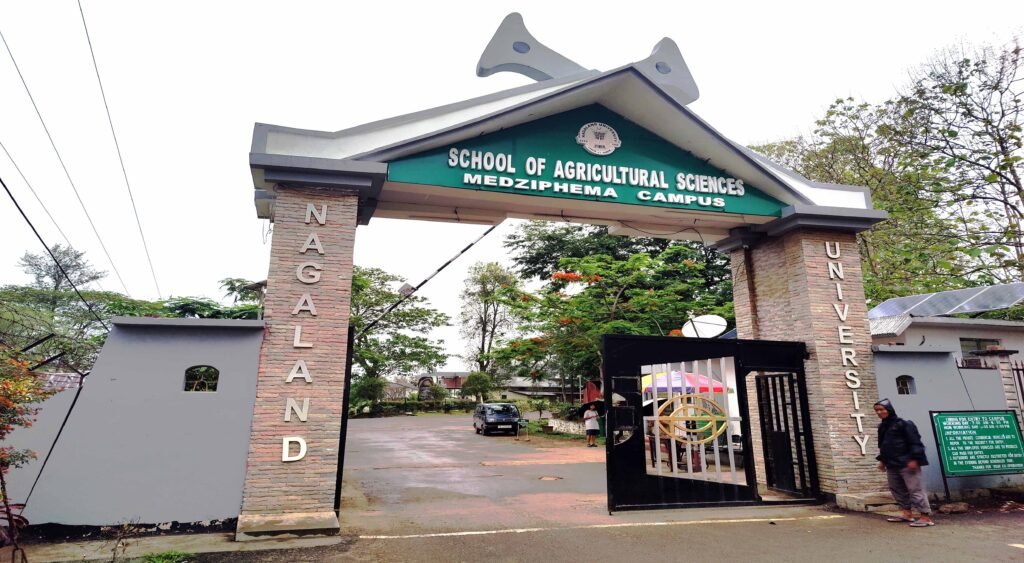
- NU facilitates various national and state scholarships (e.g. NEC Merit, ST Post Matric) as per State Department guidelines in 2025. Are students effectively informed and assisted to access these funds?
Almost all students of NU, especially the Tribal students are covered under one or the other student scholarship. The university Departments mentor the students in this regard after their admissions.
- Awareness of CUET, NET, JRF, M.Phil. qualification criteria shapes PG admissions.
Nagaland University has been making active efforts to help students understand the importance of national-level exams like CUET, NET, and JRF. Departments conduct briefings, orientation sessions, and mentoring to guide students. The Career Counselling Cell also plays a key role in informing students about eligibility and exam preparation. That said, there’s a need for more structured support, such as regular workshops and mock tests, particularly for students from underrepresented or first-generation academic backgrounds.
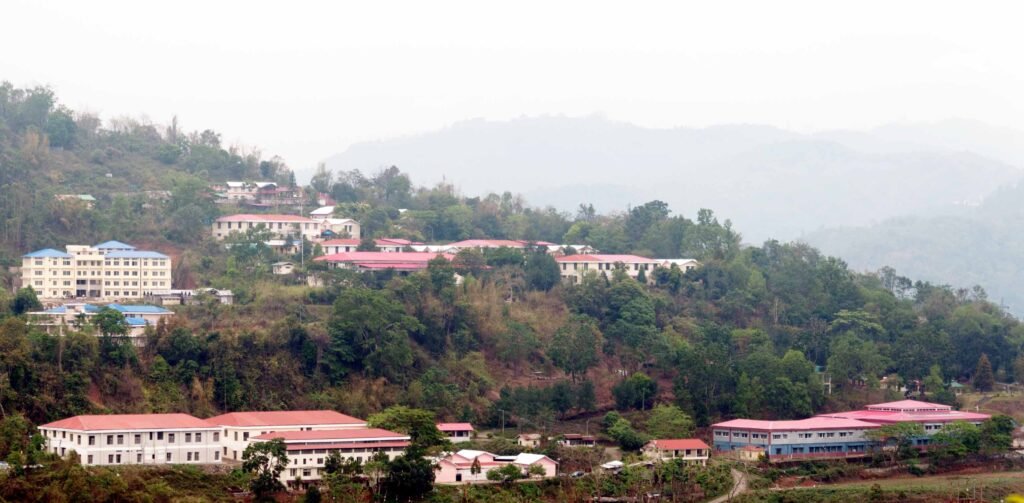
- With NU’s rural-development course and incubation centre emphasizing local impact, how well are linkages with government, panchayats, and rural NGOs working so far?
The University is gradually building strong connections with grassroots institutions, especially through the MA in Rural Development and initiatives under the Tribal Research Centre. Projects like research on stingless bees, modern Pig breeding, water resource management, and Dhansiri River restoration have created meaningful collaborations with local communities. However, many of these linkages are still project-based. The goal now is to make them more long-term and community-driven, perhaps by formalising MoUs and partnerships with local bodies.
- Are there sufficient field based learning opportunities (internships, rural extension projects) to translate academic knowledge into grassroots interventions?
Yes, fieldwork is already a part of the curriculum in departments like Sociology, Anthropology, Education, Geology, Geography, History & Archeology, Rural Development, and all 13 Departments under the Schol of Agricultural Sciences etc. However, expanding these opportunities across more disciplines, including engineering and natural sciences, would help students better apply their learning in real-world settings. Support in the form of fieldwork grants, local partnerships, and credit-based internships can go a long way in bridging classroom knowledge and grassroots realities.
- Given NU’s increasing focus on entrepreneurship and rural academic programs, what additional resources (funding, industry partnerships, faculty expertise) are needed to elevate these efforts?
NU’s focus on entrepreneurship, especially through the North East Incubation Centre at Kohima, is a welcome step. To take this further, consistent funding, domain-specific mentorship, and market access are essential. Faculty development in areas like rural innovation, social enterprise, and participatory research will also be key. Industry linkages especially in agro-processing, eco-tourism, crafts, and bio-resources, can offer students hands-on exposure. Setting up a dedicated Innovation Cell to coordinate these efforts would help turn student ideas into meaningful ventures.
- Should NU expand beyond current campuses—perhaps adding new disciplines or setting up more centres of excellence in Nagaland?
At present, Nagaland University’s three permanent campuses: Lumami, Kohima (Meriema), and Medziphema, are effectively addressing current academic demands, especially following the relocation of the School of Engineering to Kohima. The recent infrastructure expansion, including new academic buildings and hostels under HEFA funding, positions NU well for academic consolidation.
New courses like Public Health, Indigenous Studies, AI and Machine Learning, and Data Analytics are highly relevant to the region. Centres of excellence in areas like biodiversity, tribal governance, and peace studies can position NU as a research leader rooted in local realities but with global relevance.

